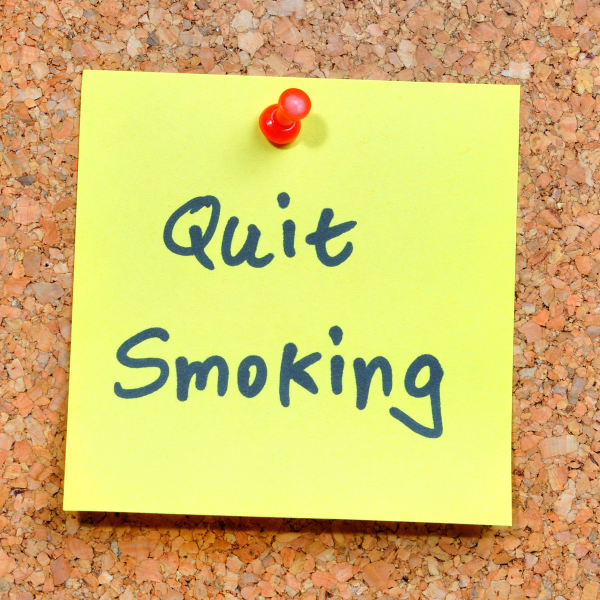Tobacco and E-cigarettes
Tobacco use is the leading preventable cause of death and disease in Australia. 1 Each year smoking claims the lives of over 20,000 Australians. 2
Tobacco smoke contains more than 7000 chemicals and at least 69 are known to cause cancer. When you inhale cigarette smoke, the toxins go everywhere your blood flows, causing disease in nearly every organ of the body, at every stage of life. 3
More than 10,000 Australians are diagnosed with a smoking-related cancer each year and around 1 in 5 cancer deaths can be attributed to smoking. 4
The good news is that no matter how long you have smoked, quitting will benefit your health now and in the future. It will also benefit the health of your friends and family and save you money.

Quitting smoking is the best thing you can to reduce your risk of cancer, and there are various methods that are proven to be safe and effective. Nicotine is highly addictive, and it can take multiple attempts to quit for good. It is important to choose a method that suits you, to find the right support, and to plan and prepare for your quit attempt to improve your chances of success. Our Quit Because You Can online booklet is the best place to start.
Talk to your GP or pharmacist about your decision to quit smoking, they will be able to provide information and support to help you.
You can also call Quitline on 13 7848 for advice and support or visit them online for information and resources.
Education and Support
CCACT specialise in providing training to workplaces, community service organisations, and health professionals on reducing tobacco related harm. Our team provide the following FREE services
- Quit Seminars – covering the physical and mental benefits of quitting and strategies and supports to quit smoking or stay quit.
- Brief Intervention Training - building staff capacity in providing brief interventions and quit smoking support to clients.
- Quit Packs – Order your free Quit pack, contact us at Cancer Council ACT on the details below.
To find out about our education services, or to book in a session, please contact us.
- Australian Institute of Health and Welfare 2017. National Drug Strategy Household Survey 2016: detailed findings. Drug Statistics series no.31.Cat. no. PHE 214. Canberra: AIHW
- Australian Bureau of Statistics (2019). National Health Survey: First Results, 2017-18. ABS cat.no.4364.0.55.001. Canberra
- U.S Department of Health and Human Services. The health consequences of smoking – 50 years of progress: a report of the Surgeon General. U.S. Department of Health and Human Services, Centers for Disease Control and Prevention, National Center for Chronic Disease Prevention and Health Promotion, Office on Smoking and Health, 2014.
- Australian Institute of Health and Welfare. (2019). Cancer in Australia 2019. Canberra: AIHW.
